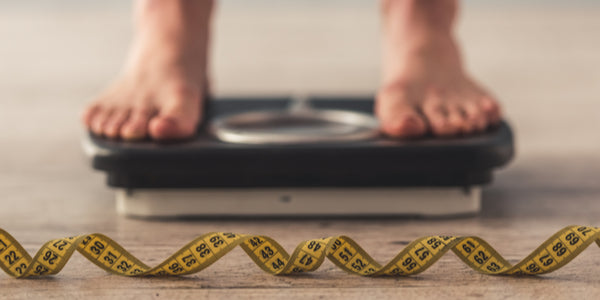
Got 20 minutes to spare? A power nap might just be what the doctor orders!
It's true – there are numerous health benefits of napping. In fact, naps may even improve metabolism.
Learn all you need to know about why naps are good for you here!
The Power of a 20 Minute Nap
Naps are frequently correlated with laziness or reserved for the average toddler or older adult. But sleep research shows they largely benefit mental wellbeing, contribute to physical health, and may facilitate weight loss.
However, the length of the nap certainly matters. And while adequate sleep is beneficial, a long nap does not exactly equate to better health.
Otherwise known as a "power nap," researchers deem 20 minutes as the optimal nap length. Sleep experts suggest that taking a longer nap may be more harmful than helpful. This is because after 30 minutes, one can fall into such a deep sleep that when arising, they may feel more tired than they did beforehand.
Some of the most touted benefits of a quick, 20-minute cat nap include:
• Combat against fatigue
• Promote physical and mental wellbeing
• Increase emotional intelligence
• Boost mood
• Reduce stress
• Heighten concentration levels
• Improve alertness
• Strengthen interpersonal relationships
• Help develop solid sleeping patterns
• Reduce the risk of weight gain
Can Naps Improve Metabolism?
While diet and exercise most directly impact metabolism, sleep, and thus napping may play a role as well.
Does this mean napping burns calories? Although napping does not directly burn a large number of calories while sleeping, naps may still benefit metabolism and weight, albeit more indirectly.
Increase Energy
Taking a quick nap in the afternoon may increase motivation to exercise. No one wants to hit the gym or the roads on an empty energy tank. Not to mention trying to complete a workout when energy is limited likely will not lead to results and may even derail health goals in the long run.
Ultimately, if taking a nap re-energizes the spark to exercise, one will likely put more effort into the workout. This can mean that said person burns more calories, makes more muscle gains, and improves cardiovascular fitness.
Regulate Hormones & Cravings
Nighttime sleep affects hormones, but naps may help manage them as well. Hormone regulation is at the heart of cravings or lack thereof.
Oftentimes, people opt for a high sugar/carbohydrate snack in hopes of avoiding the afternoon slump. But only to realize it backfires when the blood sugar crash hits. And if the reason for desiring a nap is already related to a sleep deficiency, it is also likely that the hunger hormone ghrelin is increased. Thus, getting shuteye may remind the body and brain that sleeping for 20 minutes is more effective, also reducing cravings and increasing decision-making capacity.
A short nap may also help regulate insulin. First, though, it is vital to understand that as long as insulin is circulating blood, it creates an environment for the body to store fat. Therefore, minimizing insulin secretion by taking a cat nap, rather than reaching for sugary food or drinks that will spike insulin, is an effective way to support metabolism and a healthy weight.
Finally, a nap may help manage emotions and therefore, minimize the release of the stress hormone, cortisol. Heightened feelings can lead some people to emotionally overeat, and the increased release of cortisol can trigger cravings for high carbohydrate foods. And although the mechanism is not completely understood, chronically elevated cortisol contributes to weight gain specifically in the abdominal area.
All in all, taking a nap can combat emotions and the inevitable hormonal secretions that may drive one to eat.
Recapping the Health Benefits of Napping
Rest assured, napping is not only reserved for tiny humans and does not signify laziness. Instead, a quick 20-minute nap can combat afternoon fatigue enough to positively contribute to health.
Recharging with a short sleep can rejuvenate energy levels, increase mood and wellbeing, heighten motivation to workout and help manage hormones– all of which may positively affect metabolism and weight.
So, officially calling all nappers to rejoice in allotting time for a daily 20-minute nap!







